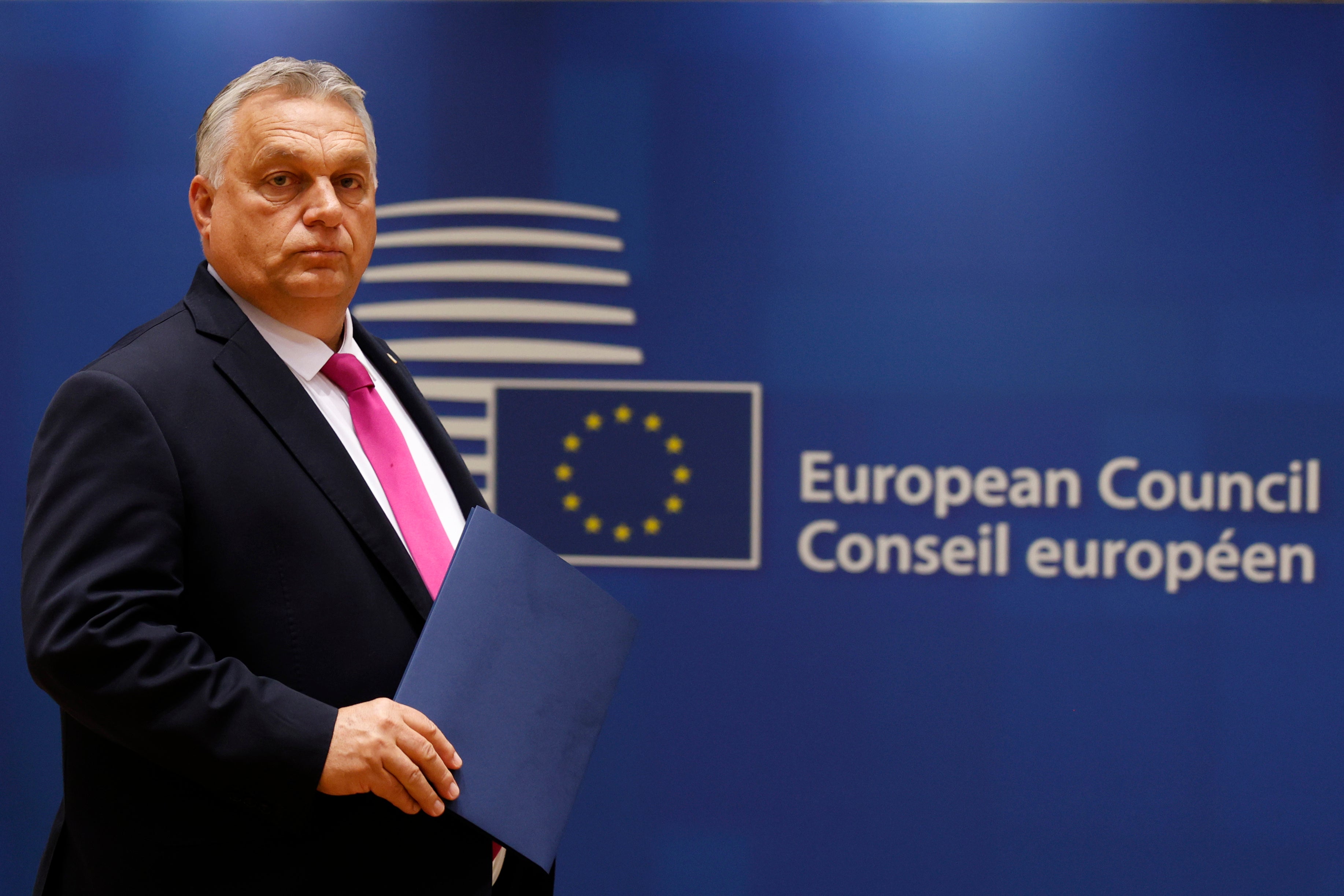Hungary's Orbán says negotiations on Ukraine's future EU membership should not move forward
Hungary’s prime minister says Ukraine is not ready to begin talks on future membership in the European Union, signaling again that his country could pose a roadblock to Kyiv’s ambitions to join the bloc

Your support helps us to tell the story
From reproductive rights to climate change to Big Tech, The Independent is on the ground when the story is developing. Whether it's investigating the financials of Elon Musk's pro-Trump PAC or producing our latest documentary, 'The A Word', which shines a light on the American women fighting for reproductive rights, we know how important it is to parse out the facts from the messaging.
At such a critical moment in US history, we need reporters on the ground. Your donation allows us to keep sending journalists to speak to both sides of the story.
The Independent is trusted by Americans across the entire political spectrum. And unlike many other quality news outlets, we choose not to lock Americans out of our reporting and analysis with paywalls. We believe quality journalism should be available to everyone, paid for by those who can afford it.
Your support makes all the difference.Hungary's prime minister said Friday he does not support moving forward on negotiations on Ukraine's future membership in the European Union, signaling again that his country could pose a major roadblock to Kyiv's ambitions to join the bloc.
EU leaders are to decide in mid-December whether Ukraine should be formally invited to begin talks to join the 27-member union, with Hungary seen as a potential obstacle. Unanimity among all member states is required to admit a new country into the bloc, giving Hungary's prime minister, Viktor Orbán, a powerful veto.
The EU’s executive branch on Wednesday recommended that Ukraine should be permitted to open membership talks once it has addressed some shortfalls. But in an interview with state radio on Friday, Orbán said the embattled country is nowhere near gaining membership in the world’s largest trading bloc.
“Ukraine is in no way ready to negotiate on its ambitions to join the European Union,” Orbán said. "The clear Hungarian position is that the negotiations must not begin.”
Orbán's government has refused to supply Ukraine with weapons in its war against Russia and has threatened to veto EU financial aid packages to Kyiv. It also accuses Ukraine of violating the rights of an ethnic Hungarian minority in western Ukraine by restricting its use of the Hungarian language in schools.
Hungary is also in a protracted struggle with the EU over alleged infractions of rule-of-law and human rights standards, which has resulted in billions of euros in EU funds being withheld.
Orbán denied that Hungary’s opposition to Ukraine's EU membership talks was connected to the withheld funds and sought to dispel suspicions that his government was using its vote on Ukraine to pressure the EU to release them.
He added that his government would "not accept" pressure from the EU to support Ukraine's membership bid in exchange for having the funds released.
In addition to Hungary, neighboring Slovakia could also pose an obstacle to Ukraine's EU accession talks. Its newly elected prime minister, Robert Fico, has threatened to withdraw his country's military support for Ukraine, and recently called its eastern neighbor “one of the most corrupt countries in the world.”
But in its Wednesday recommendation to proceed with EU accession talks with Kyiv, the European Commission lauded Ukraine, saying that its government “has shown a remarkable level of institutional strength, determination and ability to function.”
It said that talks should only start once it has addressed corruption, lobbying concerns, and restrictions that might prevent national minorities from studying and reading in their own language.